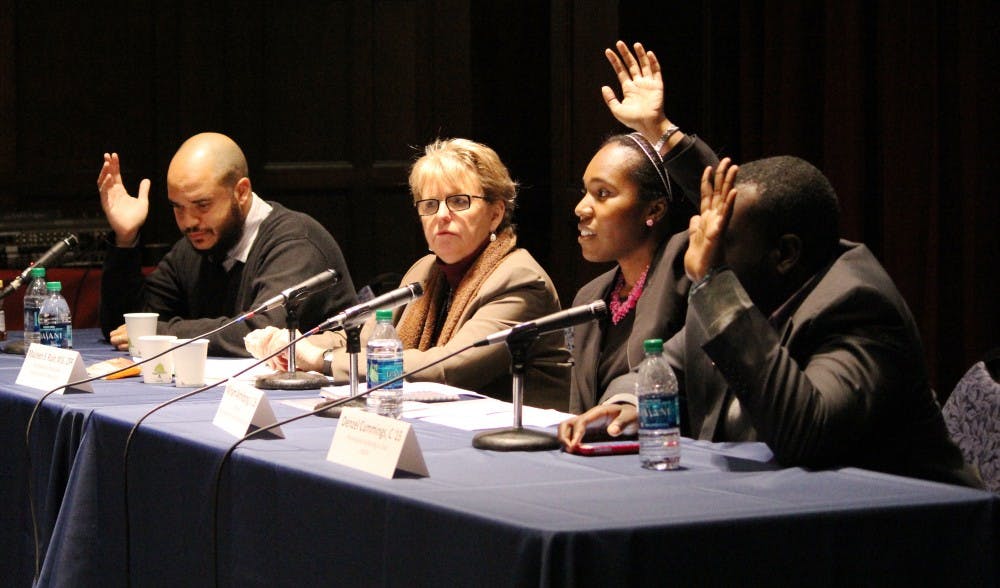Though racial profiling has been highlighted recently in the media in the wake of Ferguson, the issue has been a point of controversy in the United States and at Penn for a long time. In 2003, for example, the issue erupted when a black associate master of a college house was pepper sprayed and handcuffed by Penn Police. As recently as Nov. 20, students critiqued the Division of Public Safety during a panel discussion over a photo that depicted a young black boy who had been tied to a tree by a Penn Police officer.
In the aftermath of the Ferguson decision, as black advocacy groups campaign for reforms to community policing, the issue of racial profiling by Penn Police has resurfaced, said College senior and former UMOJA Chair Denzel Cummings.
As a student leader, Cummings has spoken with a number of black students who told him about their experiences being racially profiled. Usually, he said, racial profiling at Penn amounts to black students being stopped on the street and asked for identification. As long as the students present PennCards, he said, the conversation with police is unlikely to extend further.
John, who agreed to share his experience being racially profiled on the condition of anonymity, said that he was stopped by Penn Police in the fall because he “fit the description of a burglar.”
“In that moment when it happened to me, part of me wasn’t really ready,” he said. “If only these officers knew the person that I am. If only they knew the people I know and what they’d say about me.”
John said the most challenging part of being racially profiled was having the police discredit everything he has worked toward, including getting into Penn.
“Yale, Penn — that goes out of the window when it comes to being profiled by the police,” he said, referring to a recent incident in which a black Yale student was stopped at gunpoint by Yale Police. “Everything that your life has built up to, in that moment, it’s valueless almost.”
After his encounter with Penn Police, John said he takes care to be identifiably “Penn” when he dresses in the morning. “If I’m not walking around with my big Wharton sweatshirt on or some type of Penn paraphernalia, I run the chance of not being associated with the University,” he said.
Cummings said this type of reaction is normal for Penn students. He said that many black students feel the need to “suit up” in the morning to avoid attracting attention.
“Race relations between Penn Police and the West Philadelphia and University community has long been a top agenda item,” said Vice President for Public Safety Maureen Rush.
Rush said a number of racial profiling incidents in the mid-2000s led to a major internal push for reform in policies within DPS. She said all Penn Police are held to strict standards regarding their rationale for stopping certain individuals.
“Anytime the Penn Police make a pedestrian stop, they must outline what the reason for the stop was,” Rush explained. “If there’s anything that doesn’t look right, it comes to my attention.”
DPS survey data collected from all individuals who interact with Penn Police show approval rates in the high 90s, Rush added. “No one should walk around fearful about [what] they look like,” she said.
Penn Police usually only stop Penn students if they fit the description of a suspect or are engaging in suspicious behavior, Rush explained.
She added that DPS has been dealing with racial issues for years with specific initiatives, like the Police Athletic League, where some officers volunteer to play sports with local youth.
During a routine roll call — when Penn Police report for duty — before the Ferguson decision was announced, Rush said she recorded a video highlighting students’ right to freedom of expression.
“We wanted them to ensure the safety of the protesters,” she said, noting that it is a “very emotional time in our country around race.”
Despite reassurance, some black students still feel that they are targeted due to their race.
“I know my identity, and I am almost always a target,” John said. “My hope is to open a dialogue among students.”



